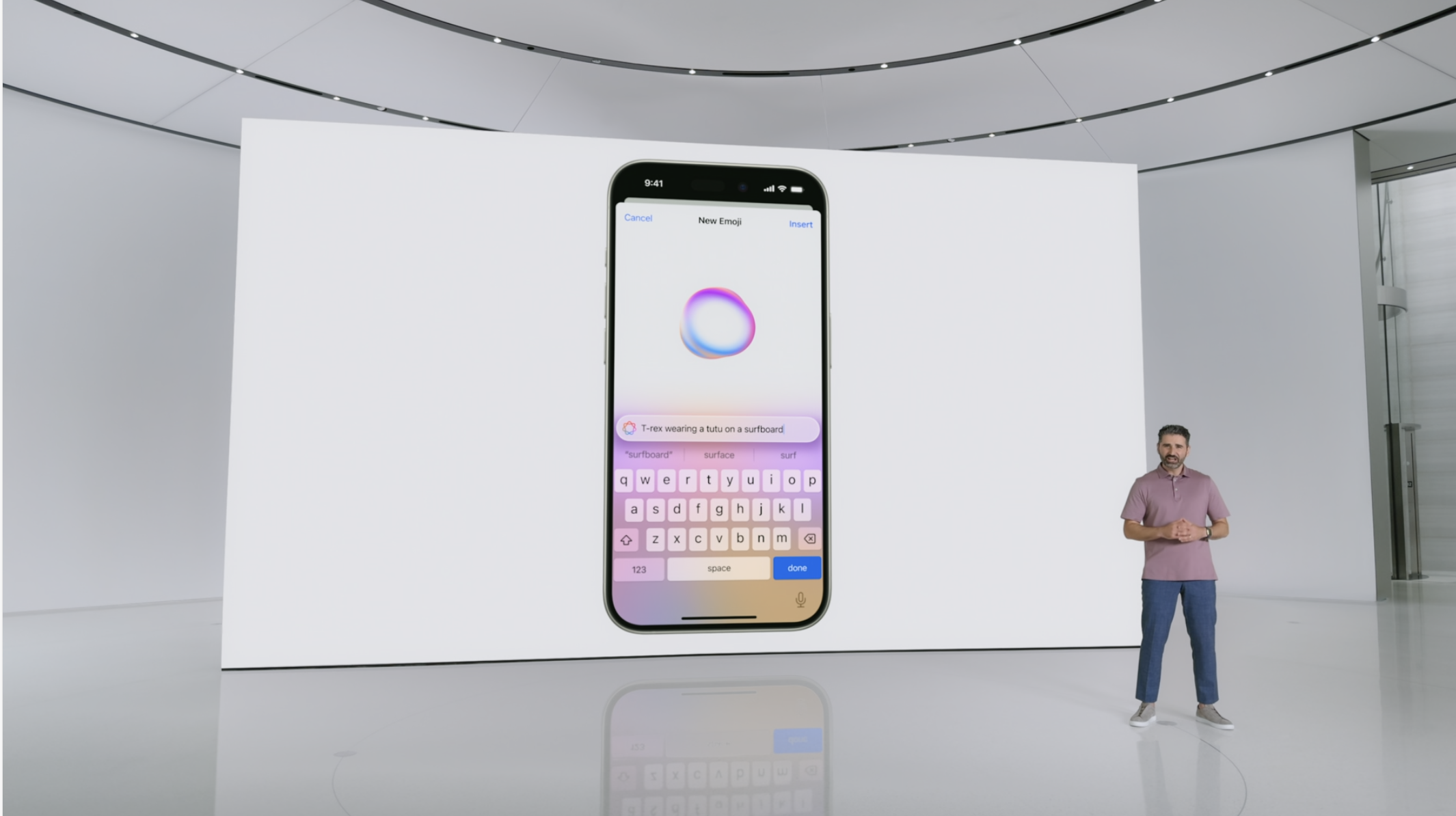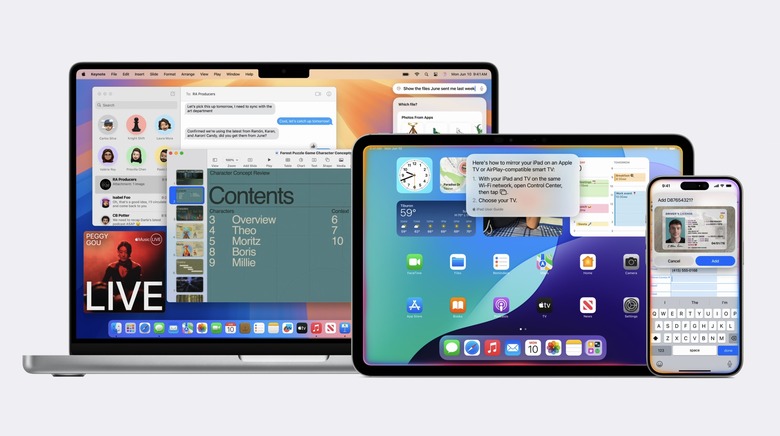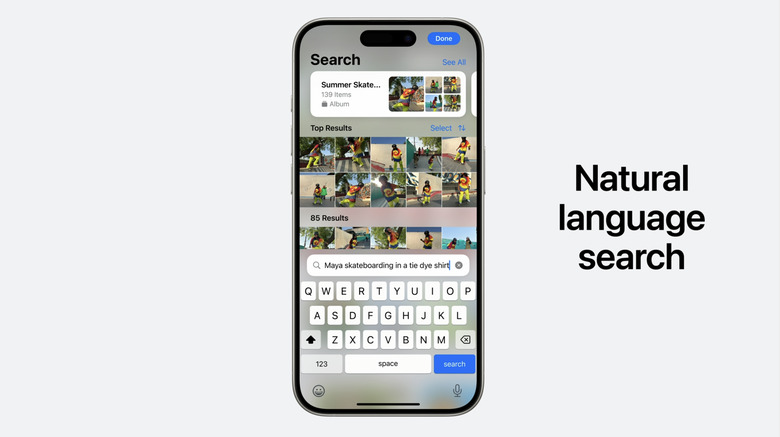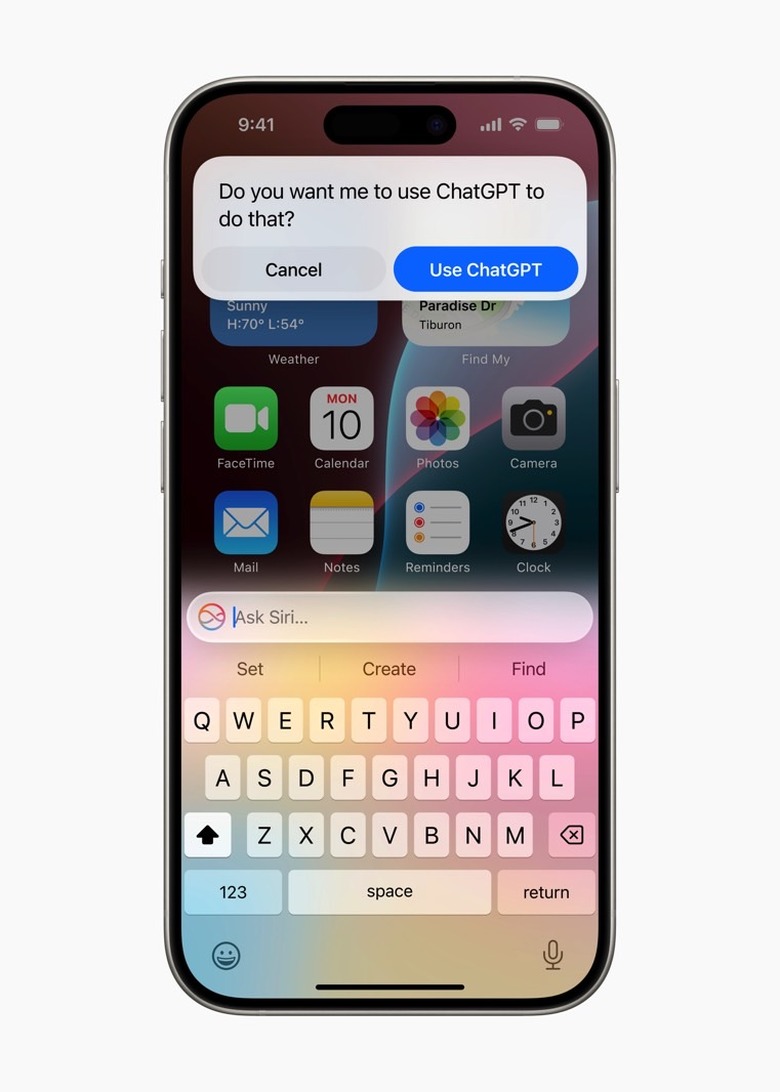Apple Intelligence: iPhone, iPad, And Mac Get Apple AI
It finally happened: Apple announced the artificial intelligence product to power its devices. As rumored, Apple's AI is called Apple Intelligence. It's a personal intelligence system that brings powerful language models to the iPhone, iPad, and Mac.
Let's talk privacy
As expected, Apple Intelligence prioritizes privacy. We expect that from Apple, and several iOS 18 rumors have suggested that.
Apple Intelligence should protect your privacy "at every step," whether it's on the iPhone, iPad, or Mac.
Apple's Craig Federighi took the stage to demonstrate the various features of Apple Intelligence and spent ample time explaining how it works.
The AI will process features on-device, just as expected. Apple's various language models will process data on the iPhone, iPad, or Mac with the help of Apple's multiple A-series and M-series chips inside these devices.
However, Federighi also acknowledged that there will be cases when you'll need more processing power for Apple AI. Apple will beam data to the cloud for processing with something called a Private Cloud Compute.
The Private Cloud Compute will run on brand new Apple AI servers powered by the same Apple Silicon found inside iPhones, iPads, and Macs. The data will reach Apple's servers only after the device decides whether it can process the AI request or whether it needs the help of Apple's dedicated cloud.

Apple Intelligence is embedded in all your devices, meaning you can choose whether to use AI features.
When it comes to actual features, Apple Intelligence will sound familiar to anyone using ChatGPT, Gemini, and other genAI products out there.
Apple's AI will prioritize notifications, summarize text, and help you create images from the photos you already have in your library.
Federighi offered other examples of Apple Intelligence working for the user. For example, you'll be able to ask for files or play content by talking to the AI.
The AI will also have access to your content without beaming that data to any cloud. Apple Intelligence will also have access to the contents on the screen, and will hopefully help with that. Again, if that sounds familiar, it's because OpenAI already does it with ChatGPT.
The Siri Assistant I've been dreaming of
One of the biggest upgrades I'm waiting for Apple when it comes to Apple Intelligence is Siri, and Apple delivered. Siri is getting its own AI powers. The assistant will sound more natural and personal than before. It's also getting a new identity, and that's a glowing light around your screen. That should make it clear you're interacting with a different Siri.
Siri will support typing in addition to voice. I've been waiting for that kind of experience from the new Siri, considering that's how I usually talk to ChatGPT.
Siri will also get on-screen awareness, which means it'll be able to perform actions based on the screen's content.
Apple also demoed another interesting Siri power that should help those people who are new to iPhone, iPad, and Mac. Siri can help you with various iOS, iPadOS, and macOS features, you just have to ask.
More interestingly, Siri will perform actions on your behalf in apps. That's a killer feature for personal AI, and something rivals can't really match. You'll be able to give Siri simple instructions like "add this photo" to a different app, and Siri will do it.
Apple Intelligence also comes with a new App Intents API that developers will be able to use so Siri can take actions in their apps. Initially, the smarter Siri will be restricted to Apple apps.

The best part in all of this is that Siri will know things about you, like the contents of photos, messages, or files, and perform actions concerning that content without breaking your privacy. Apple is setting up some big standards that rivals will have to match.
For example, Siri will be able to extract information from photos, like an ID number, and fill it into a web form. That's really what I want from AI, in addition to help for training for marathons.
Apple Intelligence features
Siri is easily the highlight of Apple's AI, but the iPhone, iPad, and Mac are getting plenty of exciting genAI features.
Rewrite is a new tool that lets you generate text for all sorts of mediums and edit written text.
The Smart Reply feature in email summarizes emails for you so you can figure out answers. It then composes the email featuring the answers.
Genmoji is the annoying name Apple gave to generative emoji. We knew thfeatureur was coming to iOS 18, and it's exactly what you think it is. You'll tell the AI what sort of emoji you need, and the Intelligence will make one for you.
Image Playground is Apple's generative AI tool for creating images. Time will tell how real these images will look. Considering the photos Apple shows during the event, these are rather cartoony, very obvious AI jobs. Image Playground comes as a built-in AI app, but it'll also work in other apps.
Image Wand is a new AI tool for the Notes app that will turn sketches into AI-generated images. The Notes app will also get AI recording and transcription powers. The features will be available in the Phone app, too, in case you want to record and transcribe calls.
Also unsurprising are the genAI features for photo editing in Apple Intelligence. You'll be able to remove objects and people from photos, just like Android users can on their devices. Apple calls it Clean Up instead of Magic Eraser.
Apple has also improved search in the Photos app, which is something I'll certainly take advantage of. You can use natural language to find what you're looking for, whether it's a photo, or something in a video you once shot.
Apple Intelligence will also let you create videos from your clips by simply typing what you want done. And you can add Apple Music tracks to it. Just tell the AI to do it.
As expected, all these photo and video genAI features happen on device, which means your content doesn't leave the iPhone, iPad, or Mac.
ChatGPT comes to Apple Intelligence
If you've read the iOS 18 AI rumors, you expect ChatGPT to come to the iPhone. Apple confirmed on stage at WWDC, saying that GPT-4o will be built into Siri. Federighi said that Apple is starting with the "best" of these external language models, which was an initial sign that Gemini and other ChatGPT rivals could be next.
Siri will inform you if it wants to use ChatGPT and ask whether you can send information to it. Apple will handle the privacy aspect of ChatGPT that way, so you'll want to think twice before sending information to OpenAI.
However, Apple said that iPhone, iPad, and Mac users won't have to create ChatGPT accounts. Also, the requests sent to ChatGPT won't be logged. But if you are paying for ChatGPT Plus, you will be able to connect to your account from your Apple devices.
ChatGPT integration will be available later this year, Federighi said, confirming that other AI models will follow.
Apple Intelligence device compatibility
Finally, Apple confirmed that Apple Intelligence will be available for free to iPhone, iPad, and Mac users. However, there is a constraint: You'll need an iPhone 15 Pro or later for Apple Intelligence. For iPad and Mac, you'll need devices with M1 chips or later.





